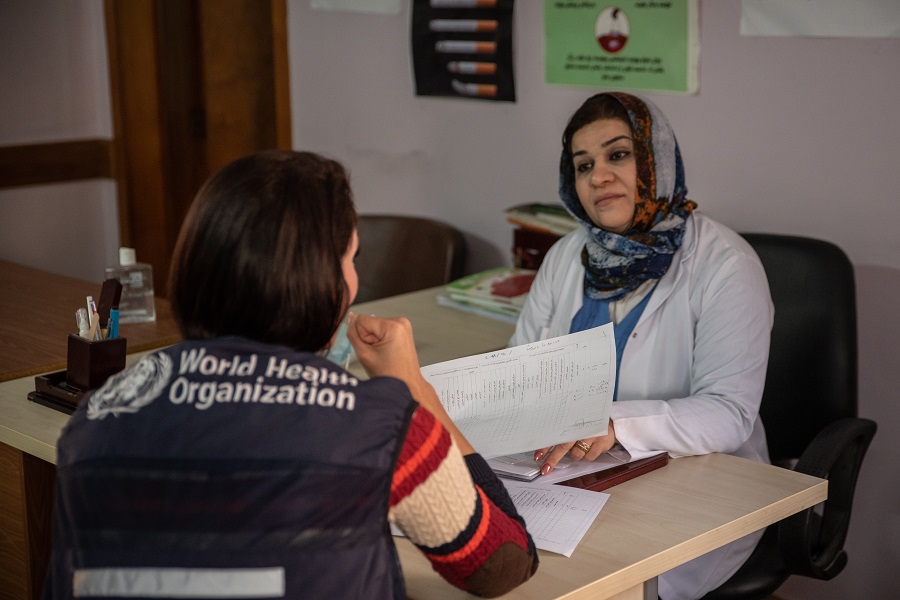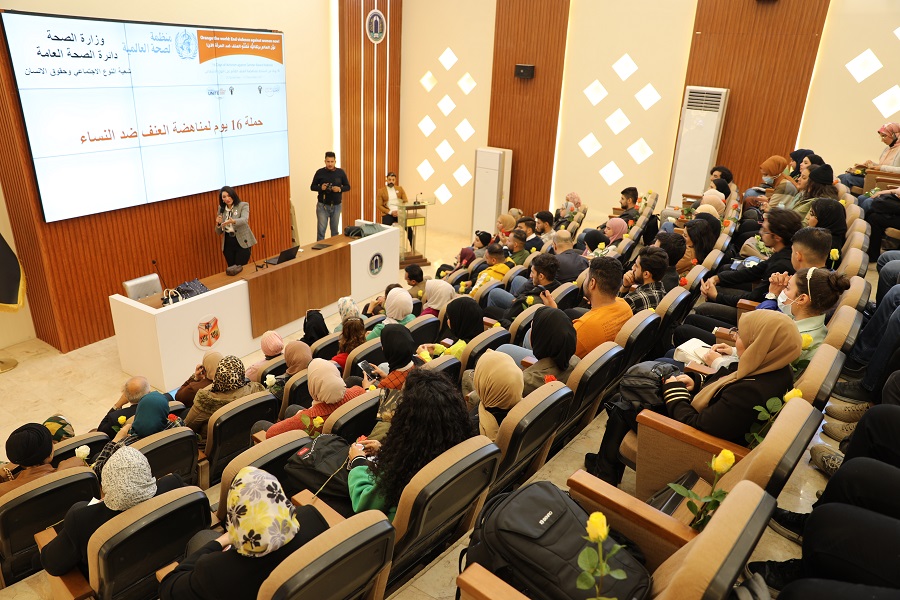 WHO has trained the Ministry of Health's GBV focal points on the adequate use of the guideline for ensuring the safe referral of GBV survivors
WHO has trained the Ministry of Health's GBV focal points on the adequate use of the guideline for ensuring the safe referral of GBV survivors
Baghdad, 17 January 2023 – The World Health Organization (WHO), together with the Ministry of Health, initiated implementation of a technical referral guideline for gender-based violence (GBV) survivors in Iraq. The guideline was developed earlier in collaboration with relevant line-ministries, organizations and other partners.
"This guide is vital to ensure timely and comprehensive support is provided to survivors of violence in a dignified manner and with adequate respect for human rights," said Dr Ahmed Zouiten, WHO Representative in Iraq. "WHO reaffirms its full commitment to supporting all health-related aspects related to GBV."
Gender-based violence is a grave violation of human rights and a major public health concern, impacting mostly women and girls. In Iraq and across the Region, GBV manifests itself in several ways, including domestic and spousal violence, rape, psychological violence, harmful traditional practices and societal norms, and neglect of women's basic needs.
The referral guideline was developed as part of the "Strategic Plan for Gender-Based Violence 2022–2026" to integrate comprehensive and well-coordinated health services provided to survivors of GBV in health institutions and raise community awareness to prevent GBV and combat the stigma associated with it.
 WHO has held various GBV awareness sessions on the importance of guideline implementation, including 150 medical students from the University of Baghdad's College of MedicineWHO has trained the Ministry of Health's GBV focal points on the adequate use of the guideline for ensuring the safe referral of GBV survivors. WHO has also held various GBV awareness sessions on the importance of guideline implementation, including 150 medical students from the University of Baghdad's College of Medicine.
WHO has held various GBV awareness sessions on the importance of guideline implementation, including 150 medical students from the University of Baghdad's College of MedicineWHO has trained the Ministry of Health's GBV focal points on the adequate use of the guideline for ensuring the safe referral of GBV survivors. WHO has also held various GBV awareness sessions on the importance of guideline implementation, including 150 medical students from the University of Baghdad's College of Medicine.
"This guideline offers referral pathways for survivors to establish a clear structure for coordination during referral and monitoring and evaluation of interventions in all response stages," said Dr Rana Mohammad, gender-based violence officer for WHO Iraq. "The guideline defines the different types of violence and explains how to respond to each and where to refer within or outside health facilities."


